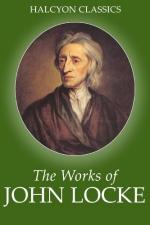
|
| Name: _________________________ | Period: ___________________ |
This quiz consists of 5 multiple choice and 5 short answer questions through The First Treatise of Government, Chapters 1-5, pp. 5-36.
Multiple Choice Questions
1. What is Locke's conclusion pertaining to the knowledge contained in the biblical scripture?
(a) That God said Eve was subservient to Adam's will.
(b) That it was not a grant from God to have power of all men.
(c) That slavery was acceptable.
(d) That God decreed that Adam be king.
2. What effect does Locke feel that Filmer's comparison of powers have?
(a) Confuses readers.
(b) Evokes anger.
(c) Flatters the ambitions of monarchs.
(d) Creates zealots.
3. What two powers are considered identical by Filmer?
(a) The right to own property and the right to marry someone of your own choice.
(b) The right to own a slave and the right to fight.
(c) The power of marriage and the power of childbirth.
(d) The power of the fathers and the power of kings.
4. Which book in the bible discusses the creation of animals?
(a) Proverbs.
(b) Genesis.
(c) Deuteronomy.
(d) Psalms.
5. According to the First Treatise, in whom is power vested?
(a) Adam and descendants.
(b) King James.
(c) Locke and his followers.
(d) Filmer and his followers.
Short Answer Questions
1. What does Filmer propose is the cause for men being denied freedom?
2. What distinction does Locke make regarding gender and power?
3. In the First Treatise, what does Locke believe that the book Patriacha actually promotes?
4. What important argument does Locke refute in the First Treatise?
5. Who does Filmer attribute the power of fatherhood?
|
This section contains 315 words (approx. 2 pages at 300 words per page) |

|




